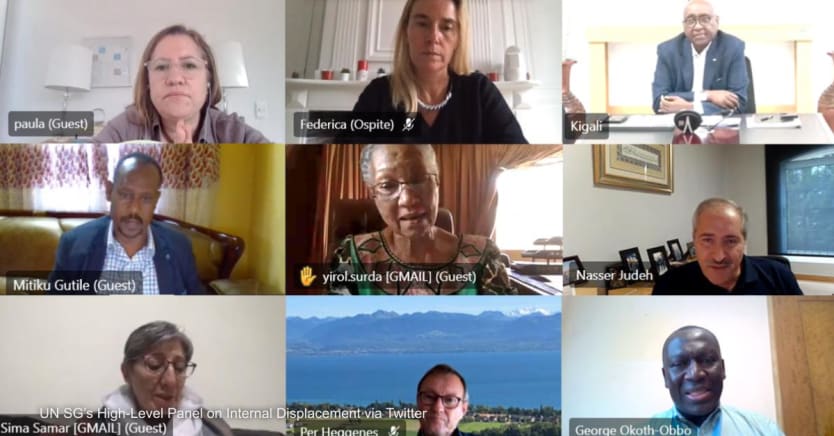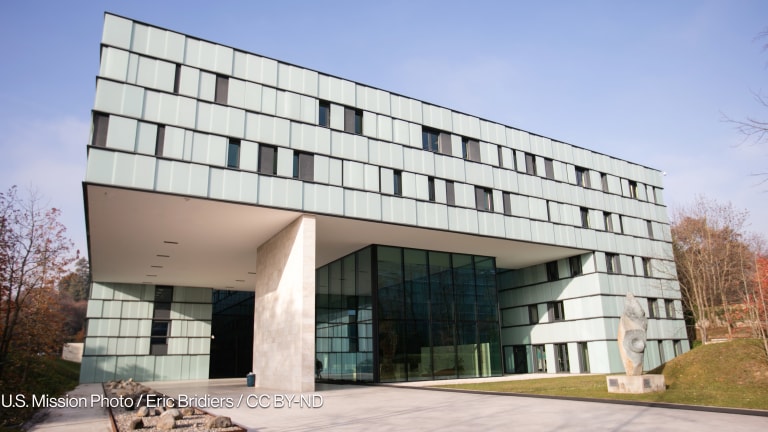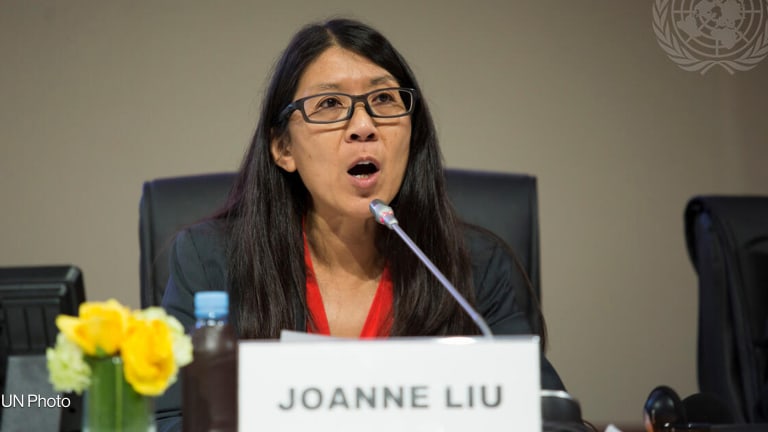
A high-level independent panel reporting to the United Nations has called for the creation of a Global Fund on Internal Displacement Solutions, though donors want to see the fine print before the new financing tool becomes a reality.
The U.N. Secretary-General’s High-Level Panel on Internal Displacement, co-chaired by former European Union foreign affairs chief Federica Mogherini and former African Development Bank President Donald Kaberuka, released its report Wednesday.
“They [international financial institutions] really were not convinced that creating a bespoke mechanism … was the best way.”
— George Okoth-Obbo, assistant secretary-general, United NationsAn executive summary, shared with the media under embargo, makes a range of recommendations, including that the U.N. secretary-general:
• Appoint a special representative for solutions to internal displacement “to provide continuous engagement with States on solutions.”
• Establish a small “Coalition of Champions” of humanitarian, development, peace, disaster risk reduction, and climate change adaptation actors to follow up the report.
• Publish an annual “State of Solutions to Internal Displacement Report.”
• Establish a small secretariat in his office to monitor the implementation of the report.
Another recommendation was that donors, along with the U.N., civil society, and the private sector, establish a Global Fund on Internal Displacement Solutions for “financial and technical support to national solutions plans and strategies.”
U.N. veteran George Okoth-Obbo, who headed the secretariat that supported the panel, told Devex Tuesday that the group had studied existing mechanisms, such as The Global Fund to Fight AIDS, Tuberculosis and Malaria, and how a similar fund for internally displaced persons, or IDPs, could work.
Climate change could internally displace 216M people, World Bank warns
Climate impacts could push 216 million people to migrate within their countries by 2050, the bank says. It urges governments to prepare for millions to do so even in the best-case scenario.
The panel published a discussion paper on the issue in July, considering “a private international entity and a multi-stakeholder initiative” designed to provide “catalytic funding” in support of country strategies on the condition that governments “meet specific requirements to qualify for funding and support.”
Wednesday’s report initially included an appendix on how the potential new fund would work, Okoth-Obbo said, though this was removed when it became clear that the idea of establishing a global fund on IDPs needed “further discussion and some further convergence.”
He said states affected by IDPs made a strong call for financing. At the same time, international financial institutions responded that they already have programs that benefit IDPs.
“They [IFIs] really were not convinced that creating a bespoke mechanism — as opposed to ensuring that internal displacement issues and the needs of the internally displaced were addressed within these mainstream programmes — was the best way,” Okoth-Obbo said. “The panel [for] its part was quite emphatic, but it recognised that for this to come to fruition, there will be a need for further discussions.”
Overall, the report found that “too many States fail to acknowledge or take responsibility for their displaced citizens and residents,” who numbered 55 million worldwide at the end of last year. However, the panel stopped short of naming countries that are failing to meet their responsibilities.
Okoth-Obbo said plans for the panel to visit 12 countries were thwarted by the COVID-19 pandemic. Country-specific good practices are cited in the report, he said, but otherwise the findings are “typological, talking about situations without naming a specific country.”








